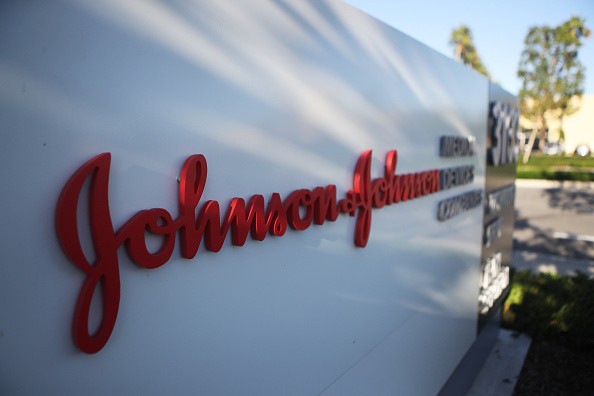Johnson & Johnson's Single-Dose COVID-19 Vaccine Shows Signs of Promise

Johnson & Johnson's experimental one-shot COVD-19 vaccine showed promise in an early safety study as the company gets closer to coming to U.S. regulators for clearance.
Initial results from an early safety study on the Johnson & Johnson's COVID-19 vaccine showed that it can generate a long-lasting immune response.
The results on the ongoing COVID-19 vaccine trial were published on the New England Journal of Medicine.
Johnson & Johnson started its phase 1-2a trial in July 2020 in the U.S. and Belgium with a total of 805 study adult participants between the ages of 18 and 55. Some others aged 65 and older also recived a high or low dose of the COVID-19 vaccine candidate or a placebo, said a report from Yahoo! Life.
Here are some things you should know about the Johnson and Johnson's COVID-19 vaccine:
It Can Produce Protective Antibodies in At Least 29 Days
Early experimental data on the vaccine showed that the Johnson & Johnson's shot produced protective antibodies against the coronavirus in 90% of the volunteers by 29 days, reported Reuters. The number also increased to 100% in a span of 57 days, data from the study said.
This is regardless of the vaccine dose given.
"Looking at the antibodies, there should be good hope and good reason that the vaccine will work," J&J's Chief Scientific Officer Paul Stoffels told Time on Tuesday.
Johnson & Johnson also said in a press release that the antibodies "remained stable through Day 71," or the length of the trial so far.
The company projects that data about the length of immune response should be seen in trial participants over age 65 by late January.
The company also plans to do "longer-term follow-up to one year" to track the progress on recipients.
Common Side Effects to the Johnson & Johnson COVID-19 Vaccine
So far, studies proved that the vaccine candidate was "generally well tolerated" by study participants. However, there are still some side effects to expect once patients get the shot.
These side effects include fatigue, headache, muscle ache and pain at the injection site. Reuters also noted some fever might happen but can be resolved quickly.
Allergist and immunologist Dr. Purvi Parikh told Yahoo! Life that the vaccine candidate would be a very promising candidate if proven effective in the next stage of clinical trials.
To get approval from regulators, J&J has to prove its vaccines is effective through lower risk of infections and severe disease in its trial participants who received the vaccine.
Data on this could be ready by February.
How Does Johnson & Johnson's COVID-19 Vaccine Differ from Pfizer and Moderna?
Aside from the difference in number of doses, J&J's vaccine generates more neutralizing antibodies than a single dose of the Pfizer and Moderna COVID-19 vaccines, which both need two shots.
The number of doses already puts J&J at an advantage over the other companies' vaccines.
Related story : FDA Officials Warn Not to Halve Covid Vaccine Doses
It also doesn't need the cold storage requirements of the other vaccines. I can be "stable for several months in just routine refrigerators," said Dr. Philip Grant who leads the company's COVID-19 vaccine trial.
With a third vaccine possibly coming in the coming weeks or month, there may be some positive effects on vaccine distributions, particularly when it came to getting to herd immunity faster, said Parikh.
So far, more than nine million Americans have been vaccinated against the coronavirus.
Subscribe to Latin Post!
Sign up for our free newsletter for the Latest coverage!
© 2026 Latin Post. All rights reserved. Do not reproduce without permission.














